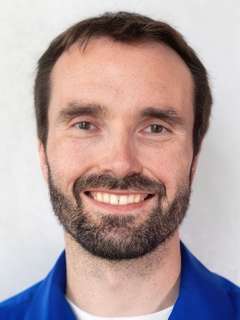
William Speier, PhD
Languages
Education
Fellowship
Degrees
Contact Information
Website
Scientific Interests
Dr. Speier's research focuses on the application of artificial intelligence to utilize biomedical data to improve clinical outcomes. His lab develops multi-modal models that combine biomarkers from a variety of sources, including radiology, pathology, molecular testing, and biosignal recordings, that can be used in the detection and prognosis of cancer. Dr. Speier works with clinical partners to translate these models from the bench to the bedside in order to improve patient care.
Highlighted Publications
Redekop, Sarma, Kinnaird, Sisk, Raman, Marks, Speier, Arnold. Attention-Guided Prostate Lesion Localization and Grade Group Classification with Multiple Instance Learning. MIDL 2022:975-987.
Li, Li, Polson, Wang, Speier, Arnold. High resolution histopathology image generation and segmentation through adversarial training. Medical Image Analysis 2022;75:102251.
Bulten, Kartasalo, Chen, Strom, Pinckaers, Ngpal, Cai, Steiner, Boven, Vink, Hulsbergen-van de Kaa, der Laak, Amin, Evans, van der Kwast, Allan, Humphrey, Gronberg, Samaratunga, Delahunt, Tsuzuki, Hakkinen, Egevad, Demkin, the PANDA challenge consortium. Artificial intelligence for diagnosis and Gleson grading of prostate cancer: the PANDA challenge. Nature Medicine 2022;28:154-163.
Zhuang, Ivezic, Feng, Shen, Radhachandran, Sant, Patel, Masamed, Arnold, Speier. Patient level thyroid cancer classification using attention multiple instance learning on fused multi scale ultrasound image features. AMIA 2023;1344.
Sant, Radhachandran, Ivezic, Lee, Livhits, Wu, Arnold, Yeh, Speier. From Bench-to-Bedside: How Artificial Intelligence is Changing Thyroid Nodule Diagnostics. Journal of Clinical Endocrinology & Metabolism 2024;109(7):1684-1693.